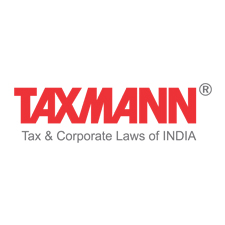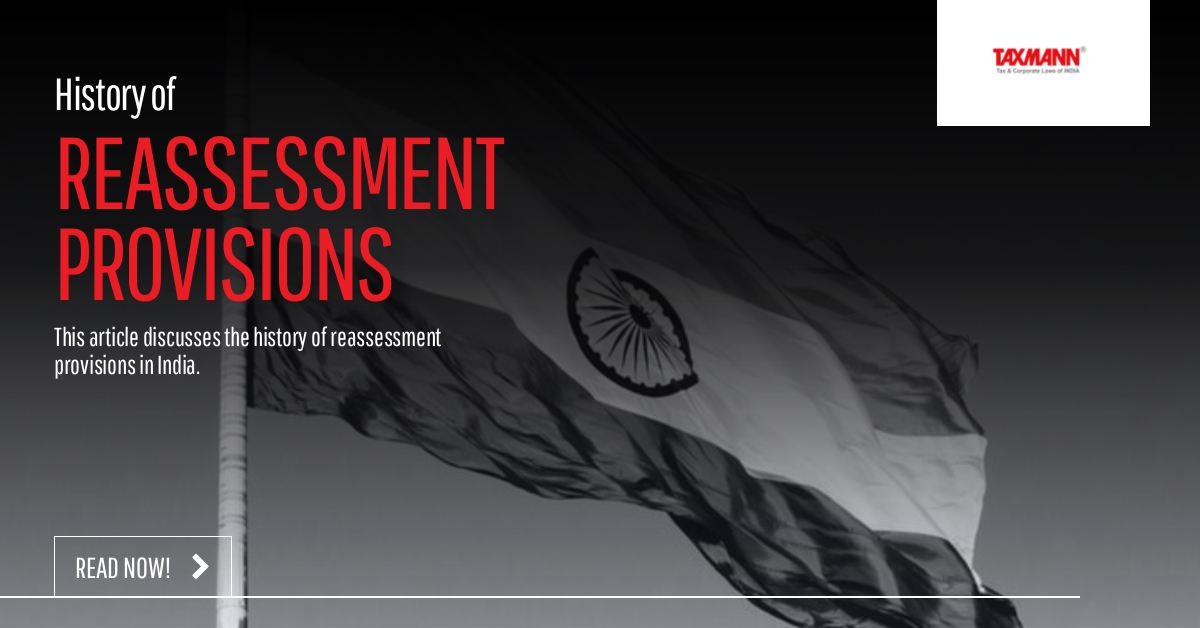History of Reassessment Provisions in India
- Blog|
- 5 Min Read
- By Nidhi Rai
- |
- Last Updated on 30 May, 2022
1. Introduction
Tax avoidance within the four corners of law is considered legitimate as taxpayers have every right to minimize their tax liability by resorting to tax planning. However, the boundary between tax planning and tax avoidance leading to tax evasion is very hazy, and the taxpayers, knowingly or unknowingly, enter into tax evasion by resorting to untenable adjustments or altogether omitting to disclose the actual state of affairs to the tax authorities. By adopting accounting juggleries, round-tripping of unaccounted money, unacceptable legal interpretations, finding loopholes in the legislative drafting, camouflaging transactions, accommodation entries, not recording transactions, etc., the taxpayers do not declare their correct income in their return, resulting in under assessment and thus, avoid payment of lawful tax to the Government. Such under assessment of the income is discovered subsequently when information relating thereto comes on the record of the tax authorities. In order to levy correct and lawful tax for the assessment year, the tax authority resorted to reassessment of income of such assessment year.
2. Law on Income Escaping Assessment Pre 1995
Section 25 of Income-tax Act, 1918 empowered the collector to reassess income of the preceding year, if he found that income chargeable to tax has escaped assessment. Subsequently, section 34 of Income-tax Act, 1922 gave similar power to the ITO to reassess income, if he believed in good faith that income for some reason has escaped assessment. Various modifications continued to take place subsequently so as to make the procedure of reassessment simpler and less troublesome to the taxpayers. Couple of limitations were provided under which procedure for reassessment could be adopted. When Income-tax Act, 1961 came into force, section 147 to section 153 provided a systematic and legally comprehensive reassessment procedure. The concept of recording reasons before reopening was inserted so that settled assessments are not disturbed merely on the basis of suspicion or apprehension. Several amendments were carried out in the reassessment provisions considering the requirement of revenue for getting rightful tax and opinion of various stakeholders. Before 1995, the reassessment in cases resulting from search and seizure operations used to be carried out through sections 147 to 153 in the same manner as reassessment in normal non-search cases was carried out, i.e., the assessing authority had to record reasons and arrive at a belief that income chargeable to tax has escaped assessment. Hon’ble Apex Court in GKN Driveshafts (India) Ltd v. ITO [2002] 125 Taxman 963 laid down procedure to be followed after recording the reasons for reopening the assessment which also led, on failure of the Assessing Officer to strictly adhere to that procedure, to leakage of revenue. But the legislature did not consider it appropriate to nullify the ratio of this decision which ultimately became the law for reassessment process.
3. Law on Income Escaping Assessment Post 1995
Through Finance Act, 1995, the concept of Block Assessments was introduced where six past assessment years was considered as one block year for carrying out reassessment of escaped income discovered due to search and seizure operations. However, feeling legal hurdles in the operations of these provisions, new reassessment scheme in search and seizure cases was introduced in 2003 through the sections 153A to 153D.
This new scheme continued in operation from 2003 to 2021. The legislature felt leakage of revenue due to several technical glitches discovered by the taxpayers and approved by the Courts, such as not recording satisfaction, by the Assessing Officer of the “person searched”, making assessment/reassessment only on the basis of incriminating material found in the search i.e., escaped income could not be brought to tax, if discovered through post search investigations, difficulties faced in counting limitations for initiating proceedings or completing proceedings, or in identifying assessment years for which assessment/ reassessment is to be carried out, in the concept of pending and abatements, or in bringing to tax escaped income in the hands of a right person to whom it belonged and discovered in the search.
Considering several technical flaws in the new scheme of assessment/reassessment through sections 153A to 153D and unavoidable impact of the ratio of Hon’ble Apex Court in GKN Driveshaft’s case, the legislature considered it appropriate to bring back old procedure of reassessment, in search/non- search cases, through sections 147 to 153 which was infact in vogue from 1922 (through section 34 of 1922 Act) to 1995 and was well established through highly respectable propositions held by Courts including Hon’ble Apex Court. To that system of reassessment, proposition held out in case was incorporated in newly enacted section 148A with additional limitations imposed on the assessing authorities, which could enable them to reopen the concluded assessments with rather comfortable ease for three initial relevant assessment years, and with severe restrictions, if concluded assessment is sought to be reopened beyond three relevant assessment years.
4. New Law relating to Reassessment
The new scheme of reassessment, though an incarnation of already existing procedure is not as simple as apparently it appears. The concept of deemed information in search/ requisition cases would enable the AO to reopen the assessment irrespective of whether any material, indicating escapement of income is discovered in the search or not, whether it would enable the AO to carry out roving and fishing inquiries even if no material is found in the search for a relevant assessment year. There are other very intricate issues which are emerging or apprehended when the new procedure of assessment/ reassessment will be applied such as whether AO can keep the material found in the search under his sleeves for several years before resorting to reassessment procedure as the limitation provided u/s 149 permits him to do so if survey is a deemed information why procedure u/s 148A is allowed to be followed in contradistinction with search cases which are also deemed information but in those cases section 148A is not followed if reassessment u/s 148 is to be carried out only on the basis of information which suggests that income chargeable to tax has escaped assessment, then how search and survey which are only deemed information for three years will become information for subsequent seven years if the new law applicable from 1-4-2021 is more beneficial to the assessee then why it should not be effective retrospectively and therefore applicable for earlier assessment years also, wherever old law is to be applied why escaped income which is otherwise taxable under the provisions of the Act is allowed to remain untaxed after three initial assessment years if such escaped income is not represented by an asset/expenditure or entry cannot be taxed. Is it not a premium to tax evasion, is it not discriminatory for honest taxpayers who declares it in the return as compared to those who do not declare and sleep over for more than three years enabling them to permanently evade tax on such escaped income.
5. Taxmann’s New Book on Reassessment
The objective of the book is as follows:
- To provide general idea about the amendment through Finance Act, 2021 and Finance Act, 2022 in the provisions relating to reassessment.
- to provide an insight into various provisions under old law through a simple and understandable explanation
- to highlight the conditions under which deeming provision of section 148 can be applied, or procedure contained in section 148A can be followed
- to highlight to what extent propositions upheld by the Courts under old law can be applied under new law
- to highlight the circumstances under which revision u/s 263 in reopened cases can be done and to highlight the circumstances under which penal provisions in relation to escaped income can be invoked.
It is possible that some readers may want quick answers to certain questions. In order to meet this requirement, a chapter on selected questions and answers, which may be called FAQs on the issues relating to assessment/reassessment has also been inserted in the book.
As a supplement, the authors have incorporated topics on “reassessment under old Law:”,“Revision u/s 263” and “penal provisions in reassessment” so that usefulness of the book is increased.
In this book, the material available in public domain and the websites of Taxmann and other agencies have been used. Largely, it is a presentation of available data in a form suitable to the issues arising from reassessment procedure giving personal views wherever considered appropriate.
Disclaimer: The content/information published on the website is only for general information of the user and shall not be construed as legal advice. While the Taxmann has exercised reasonable efforts to ensure the veracity of information/content published, Taxmann shall be under no liability in any manner whatsoever for incorrect information, if any.





 CA | CS | CMA
CA | CS | CMA
